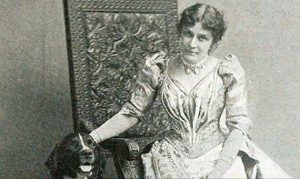Google paid homage to Indian physicist and mathematician Satyendra Nath Bose on Saturday for his contribution and dedication to the Bose-Einstein Condensate.
On this date in 1924, he sent his quantum formulations to theoretical physicist Albert Einstein, who immediately identified it as a major quantum mechanics discovery.
Also Read| Taj Mahal is the most visited monument in the world on Google Street View
Satyendra Nath Bose’s rise through the ranks took place in academia. His father, an accountant, would write an arithmetic problem for him to solve each day before leaving for work, powering Bose’s interest in mathematics.
Bose started studying for a Bachelor of Science degree at Calcutta’s Presidency College at the age of 15, and eventually earned a Master’s degree in Applied Mathematics at the University of Calcutta.
Also Read| Google Doodle honours Gama Pehlwan: A look at the legendary wrestler’s life
He cemented his prestigious position in academia by graduating first in his class for both degrees.
By the end of 1917, Bose had officially started giving physics lectures. While teaching postgraduate students Planck’s radiation formula, he began questioning particle counting methods and conducting experiments with his own theories.
In a study titled Planck’s Law and the Hypothesis of Light Quanta, which he sent to The Philosophical Magazine, a prestigious science journal, he presented his findings.
Also Read| Google helps once-endangered priceless Timbuktu scrolls achieve immortality
His research was turned down, much to his dismay. He then took a leap of faith by mailing his manuscript to Albert Einstein at that very moment.
Bose’s formula was subsequently applied to a wide range of phenomena by Einstein, who acknowledged the significance of the discovery. Bose’s theoretical paper ended up going on to become one of quantum theory’s most significant findings.
The Indian government recognized Bose’s tremendous contribution to physics by awarding him one of the highest civilian awards in the country, the Padma Vibhushan. He was also appointed as National Professor, the highest honour in India for scholars.
Also Read| Google joins Amazon in considering a bid for the Indian Premier League
As a true polymath, Bose went on to serve as president of many scientific institutions including the Indian Physical Society, National Institute of Science, Indian Science Congress and the Indian Statistical Institute.
He soon became a Fellow of the Royal Society and served as an adviser to the Council of Scientific and Industrial Research.
Also Read| No more passwords: Apple, Google, Microsoft to adopt new sign-in standard
In honour of Bose’s legacy, any particle that conforms with his statistical description today is known as a boson.
His work has resulted in numerous scientific discoveries, including the discovery of the particle accelerator and the ‘God particle’, a particle that gives all matter its mass.






